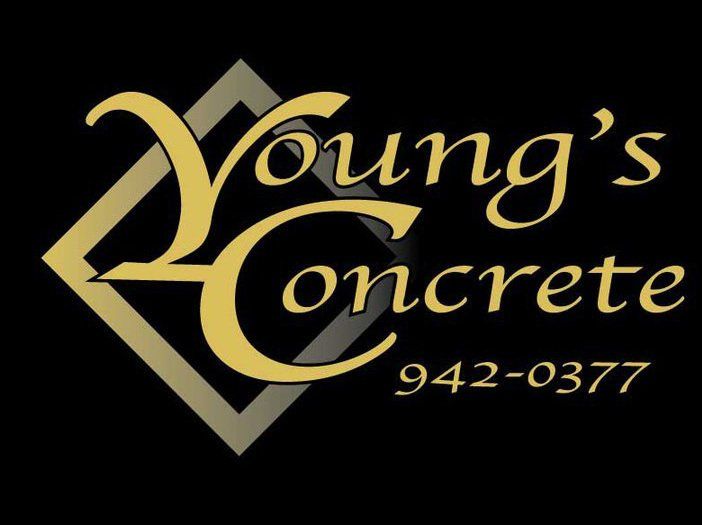FAQs
Frequently Asked Questions
What benefits can I get by opting to use a concrete driveway instead of an asphalt driveway?
Begin by considering the cost of the driveway over its lifetime. A good quality concrete driveway will last more than 30 years with little or no maintenance. Asphalt driveways need periodic sealing coats to retard age-related cracking. Even properly constructed residential asphalt driveways will deteriorate more quickly due to environmental influences than due to vehicle traffic. If you consider the cost of surface and crack sealers and the shorter life span of the asphalt, concrete will cost much less.
What qualifications should a concrete contractor possess?
The contractor must have a proper state license. Some projects require specialty licenses, while others will require a general contractor’s license. (More information on SC licensing, click here)
The contractor should be bonded in South Carolina. In some cases, a bond is required.
The contractor must have worker’s compensation and general liability insurance. (Click here to see if a contractor is insured)
The contractor must have legal employees.
The contractor should be bonded in South Carolina. In some cases, a bond is required.
The contractor must have worker’s compensation and general liability insurance. (Click here to see if a contractor is insured)
The contractor must have legal employees.
How thick should a concrete driveway be?
A minimum of 4 inches is recommended. Keep in mind that the 2x4s often used to form a driveway are only 3 1/2 inches wide, so the ground inside the 2x4 forming needs to be removed at least 1/2 inch below the bottom of the form. Thickness is the major factor (even more than the strength of the concrete) in determining the driveway's structural capacity. Increasing your driveway's thickness from 4 inches to 5 inches will add 20% to your concrete cost, but the additional inch of concrete will add almost 50% to the load carrying capacity of your driveway.
What type of finish should I use?
The two main types of used for plain concrete are troweled and broom finish. Trowel finishes are usually used indoors where a smooth, hard and flat surface is required. Broom finishes are appropriate for exterior slabs such as sidewalks, offering durability and a slip resistant surface. Decorative finishes are also available,
What provision can be made to avoid cracks?
There are many reasons why concrete cracks. Cracks rarely affect structural integrity. Most concrete cracks usually occur due to improper design and construction practices, such as: omission of isolation & control joints, improper jointing practices, improper subgrade preparation, the use of high slump (very wet) concrete or addition of water on the job, improper finishing and inadequate curing. Concrete "shrinks" slightly as it hardens, therefore, proper spacing of joints is most important.
Should there be joints in a concrete driveway?
Install control joints at a spacing of approximately 10'x10', as a rule of thumb. Spacing joints at wider intervals invite random cracking. While such cracks are generally not a structural problem and will not reduce the service life of the driveway, they are unsightly. Also avoid joint patterns that produce rectangular or triangular sections. Lay out your joints to form square sections. If in doubt, make the sections smaller, not larger. Ask your contractor to provide a jointing plan as part of his written proposal.
Is it harmful to use salt to remove ice from a concrete driveway?
If possible, avoid the use of salt on your driveway, especially during the first winter. This is especially important if your driveway was built in the fall of the year. Do not use products containing ammonium nitrates to de-ice your driveway.
Is it necessary to seal a concrete driveway?
Periodically sealing a concrete driveway will protect it from water or chemical absorption. This will make it much easier to clean accidental spills and will also help prevent the occurrence of surface defects.
How should concrete driveways be cured?
In spring and summer, concrete should be wet down with sprinkler or hose for at least four to five days starting day after concrete is poured. In winter and fall, two to four days is enough to hydrate your concrete project.
If it rains on my concrete after it is poured, what should I do?
The rain helps the curing process of the concrete. If the concrete has just been poured, the contractor will cover it until the rain moves out.
Will my concrete be white once it cures?
Yes. If color has not been added and no other additives, like calcium, etc.
Why does my new concrete project have a surface that looks hairy/fuzzy?
If your concrete has fiber-mesh or fiber-mix -- which is a reinforcement to make it stronger, the top surface in some areas will have hair-like fibers showing and is normal. This will wear off in time.
What is the difference between cement and concrete?
Although the terms cement and concrete often are used interchangeably, cement is an ingredient of concrete. Concrete is basically a mixture of aggregates and paste. The aggregates are sand and gravel or crushed stone; the paste is water and Portland cement. Concrete gets stronger as it gets older. Portland cement is not a brand name, but the generic term for the type of cement used in virtually all concrete, just as stainless is a type of steel and sterling a type of silver. Cement comprises from 10 to 15 percent of the concrete mix, by volume. Through a process called hydration, the cement and water harden and bind the aggregates into a rocklike mass. This hardening process continues for years meaning that concrete gets stronger as it gets older.
Why does concrete crack?
Concrete, like all other materials, will slightly change in volume when it dries out. In typical concrete this change amounts to about 500 millionths. Translated into dimensions-this is about 1/16 of an inch in 10 feet (.4 cm in 3 meters). The reason that contractors put joints in concrete pavements and floors is to allow the concrete to crack in a neat, straight line at the joint when the volume of the concrete changes due to shrinkage.
Will concrete harden under water?
Portland cement is a hydraulic cement which means that it sets and hardens due to a chemical reaction with water. Consequently, it will harden under water.
When can I drive on my driveway?
Spring to early Fall, wait 7 days after poured. Late Fall to late Winter time, 7 to 10 days recommended.
Request a Quote Today
Thank you for contacting us.
We will get back to you as soon as possible.
Oops, there was an error sending your message.
Please try again later.
BROWSE OUR WEBSITE
CONTACT INFORMATION
Address:
1308 McCormick Hwy
Greenwood, South Carolina 29646
Phone: (864) 942-0377
Email: youngsconcrete1308@gmail.com
Hours of Operation:
- Mon - Fri
- -
- Sat - Sun
- Appointment Only




OUR LOCATION
Content, including images, displayed on this website is protected by copyright laws. Downloading, republication, retransmission or reproduction of content on this website is strictly prohibited. Terms of Use
| Privacy Policy

